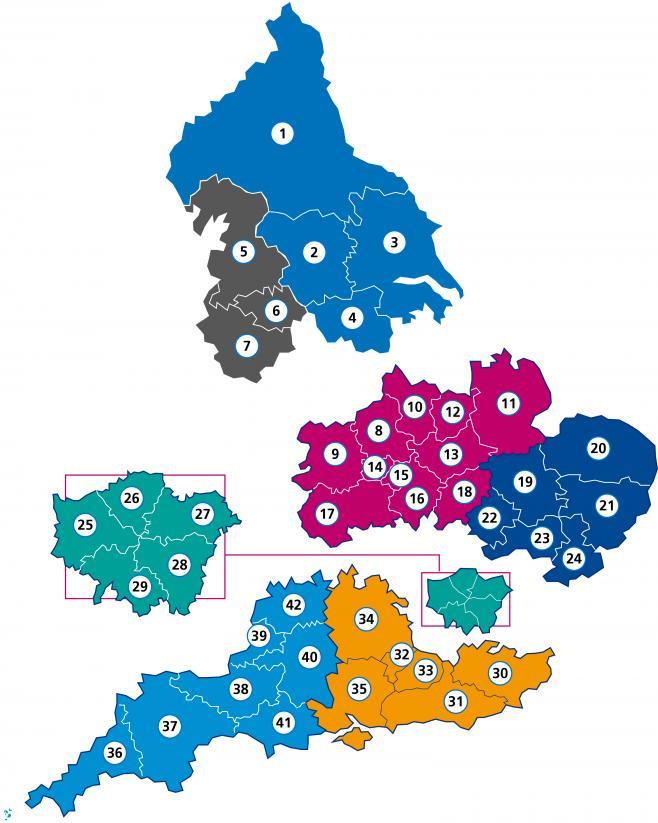Training Hubs
Find out more about Training Hubs in primary care and understand how they work
Read MoreYou are here
Training Hubs are integral to NHS England’s Workforce, Training and Education directorate’s core purpose of supporting the delivery of excellent healthcare and health improvement to patients and the public. They achieve this by ensuring the primary care workforce is trained in the right numbers, with the necessary skills, NHS values, and behaviours, at the right time and in the right place.
Training Hubs support the recruitment, retention, and return of primary care staff. They work to meet local needs and offer valuable resources and guidance for individuals, employers, and primary care networks (PCNs).
Every practice and PCN has access to a Training Hub. There are 42 Training Hubs at Integrated Care System (ICS) level, with additional locality hubs helping to link practices and PCNs. These hubs bring together education and training resources from NHS organisations, community providers and local authorities.
Training Hubs are led by a clinical leader and a manager, supported by a network of primary care staff and education professionals in the community. They collaborate closely with PCNs and ICSs to address workforce priorities, tackle health inequalities, and ensure the local primary care workforce can meet patient and population demand.
Click on your area on the map or list below to find out more information about local Training Hubs.

2. West Yorkshire and Harrogate
4. South Yorkshire and Bassetlaw
5. Lancashire and South Cumbria
8. Staffordshire and Stoke on Trent
9. Shropshire and Telford and Wrekin
10. Derbyshire
11. Lincolnshire
12. Nottinghamshire
13. Leicester, Leicestershire and Rutland
17. Herefordshire and Worcestershire
18. Northamptonshire
19. Cambridgeshire and Peterborough
21. Suffolk and North East Essex
22. Bedfordshire, Luton and Milton Keynes
23. Hertfordshire and West Essex
26. Central London
27. East London
30. Kent and Medway
34. Buckinghamshire, Oxfordshire and Berkshire West
35. Hampshire and Isle of Wight
36. Cornwall and the Isles of Scilly
37. Devon
38. Somerset
39. Bristol, North Somerset and South Gloucestershire
40. Bath and North East Somerset, Swindon and Wiltshire
41. Dorset
42. Gloucestershire
If you are unsure about which region and ICS you live or work in, visit the Integrated Care System webpage. You can find out more information from the regional School of Primary Care at your local deanery.
Find out more about Training Hubs in primary care and understand how they work
Read More